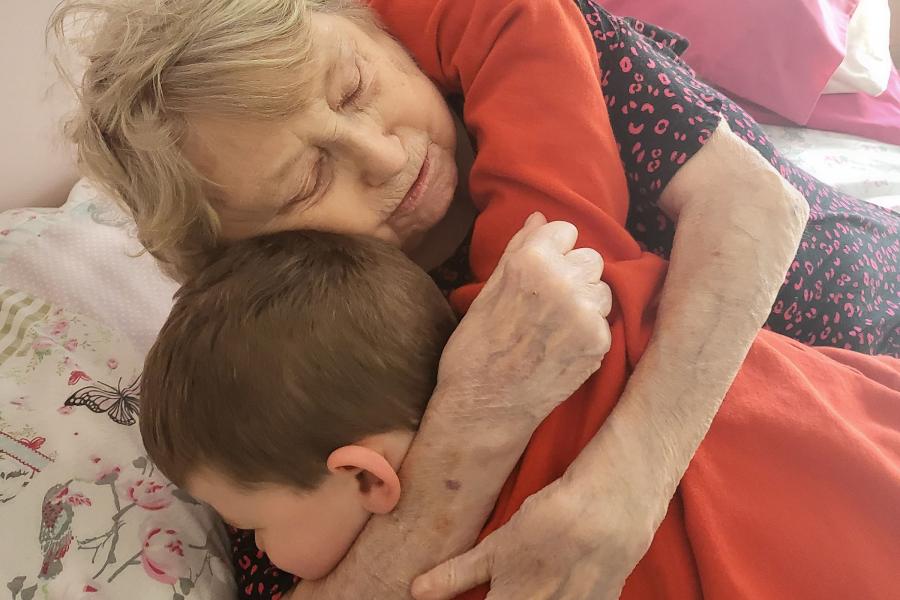About This Course
Students on the MSc Dementia studies will benefit from studying in a Medical and Health School that is highly ranked for its research in general and in particular for its research into the experience of living with dementia and supporting people living with dementia. This research is focused in the Dementia Services Development Centre (DSDC) and throughout the course students will be exposed to practical and theoretical innovations, many of which originated in the DSDC at Bangor.
The programme builds upon existing theoretical perspectives and research evidence underpinning applied health and social care practice in the field of dementia care. It critically examines current theory, practice and policy in order to advance appropriate approaches to dementia care from the disciplines of mental health, health and social care management. The course seeks to develop a framework for students to engage in active person- and family centred care of people with dementia across diverse acute and community settings. It positions assessment, care planning and interventions as strategies that respond to the complexity of dementia as a lived experience, including attention to communication and culture in therapeutic interventions to develop excellence in service delivery.
Students wishing to can exit the programme after achieving sufficient credits for either a PG Certificate or PG Diploma if they don’t wish to undertake the full MSc giving students flexibility in the duration and depth of their course.
Dementia Services Development Centre
The Dementia Services Development Centre, also known as DSDC, was founded in 1999. In collaboration with Cardiff & Vale UHB, DSDC Wales is one of a network of centres in the DSDC Network throughout the British Isles which conduct research and promote service development and training in the field of dementia care.
Research is conducted on a local and national level within Wales with the research centre in Bangor being the lead for the Wales Dementia and Neurodegenerative Diseases Research Network (NEURODEM Cymru). DSDC Wales also collaborates with research networks in the UK and internationally and is a core part of the Bangor Institute of Health and Medical Research (BIHMR). The primary aim of the DSDC is to improve the quality of life and well-being of older people and people with dementia and their supporters, through carrying out and applying relevant research. In achieving this impact, the DSDC works closely with a variety of organisations and agencies, both statutory and independent. The DSDC is committed to working with all those who strive to improve the quality of services for people with dementia and their supporters in Wales
DSDC is active across a wide range of ageing and dementia research activities and these can be broadly categorised (i) dementia care (including Alzheimer’s disease, family care-giving and psychosocial interventions); (ii) gerontology; and (iii) well-being and resilience across the life-span.
Programme Length
1 year full-time, 3 years part-time.
Video - MSc Dementia Studies

- One in two of us will be affected by dementia in our lifetime. Either by caring for someone with the condition, developing it ourselves, or both. Estimating the potential future impact and return on research investment in dementia. Office of Health Economics fro ARUK.
- 55 million people are living with dementia worlwide. World Health Organization, Global Dementia Observatory, 2020.
- The number of people estimated living with dementia was estimated to be close to one million in 2021 (944,00). By 2050, this figure is estimated to rise to 1.6 million. Luengo-Fernandez, R & Landeiro F. (in preparation). The Economic Burden of Dementia in the UK.
- 1 in 11 people over 65 have dementia in the UK Luengo-Fernandez, R & Landeiro F. (in preparation). The Economic Burden of Dementia in the UK.
Course Content
What will you study on this course?
Core Modules:
Positioning Dementia Care: This module seeks to enhance the understanding of the various discourses around dementia care and to promote an awareness of the impact of such discourses on the nature and format of care delivery.
Managing Complex Transitions: This module will equip students with the knowledge and skills to work effectively with people with dementia and family carers, during periods of crisis or when faced with complexity, upheaval, change or transition.
Communication in Dementia Care: This module will focus upon critically analysing the role of communication in relation to understanding the lived experience of dementia, engagement with a person living with dementia and in the assessments that occur within dementia care.
Culturally Sensitive Care: This module is designed to focus on an understanding of the complexity of a person’s cultural context within dementia care. It seeks to examine and reflect on how culture impacts on the experience of people affected by dementia and how this informs a person centred approach, involving the concepts of compassion and dignity.
Leadership in Context: This module explores the processes involved in leading and facilitating the implementation of change in health and social care. Drawing on a range of theory and evidence, the module also examines the role of the organisation and wider context, as well as inter-professional teams in shaping how improvement and innovation is, or can be facilitated.
Research Methods or e-Research Methods: This module is an introduction to research methods and presents a platform for students to engage in both quantitative and qualitative research approaches and develop an ability to utilise specific research techniques.
Dissertation: A supervised research project (20,000 words).
Modules for the current academic year
Module listings are for guide purposes only and are subject to change. Find out what our students are currently studying on the Dementia Studies MSc Modules page.
Course content is for guidance purposes only and may be subject to change.
Entry Requirements
A good first degree in a relevant subject from a recognised institution. Degree subjects acceptable for all programmes: Nursing, Midwifery, Occupational/Speech and Language Therapy, Physiotherapy, Medicine/Dentistry, Psychology, Radiography, Paramedics. English language standard – we ask for an IELTS score of 6 with no individual score less than 5.5 (or equivalent). This does not apply to all prospective candidates, please ask for advice as your Bachelor degree may be sufficient to meet this requirement. Working professionals with nongraduate qualifications will be considered on an individual basis.
Careers
This programme provides student-focused learning that critically examines both the theory and practice framing contemporary approaches to health and social care management for people with dementia. It has no placements or clinical competencies, making it suitable for local and international candidates who wish to study at this level as a career requirement or for academic progression.


